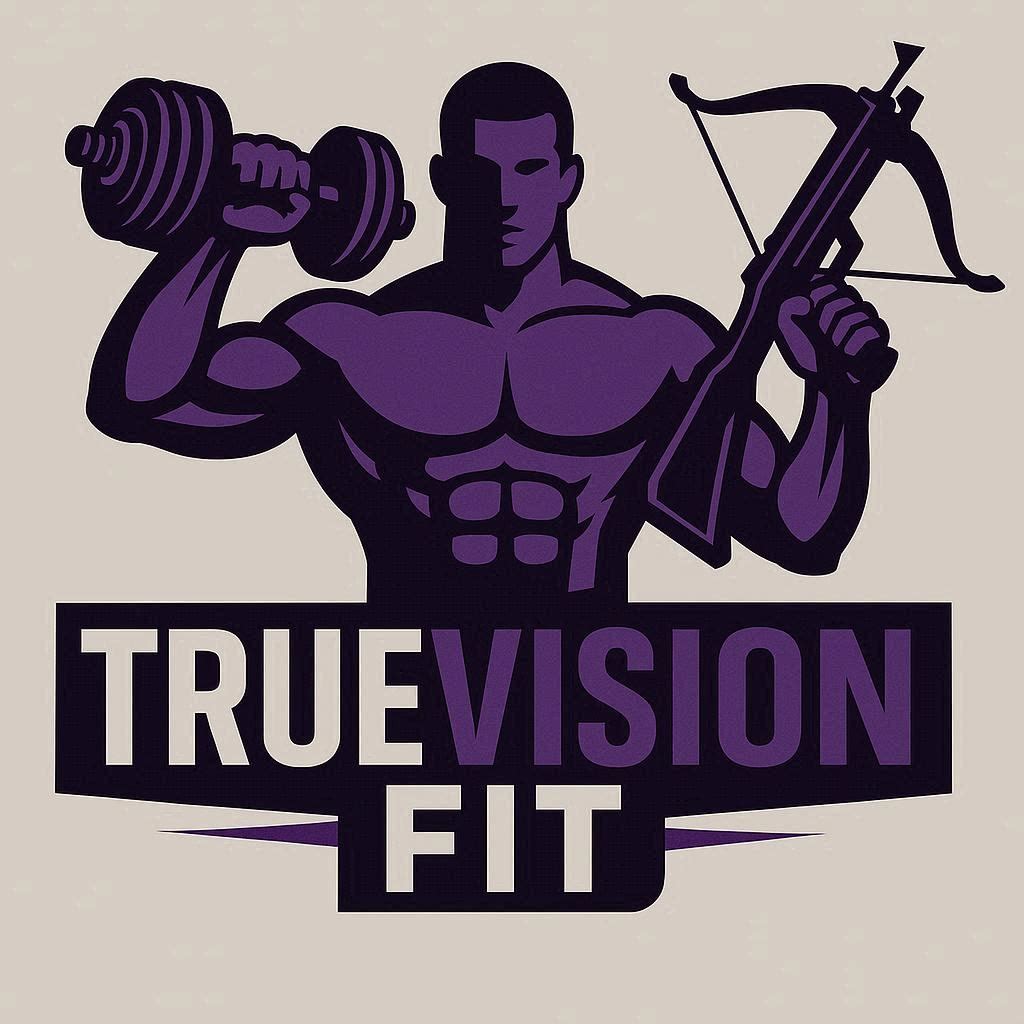Sleep isn’t just a nighttime activity; it plays a fundamental role in maintaining overall health. It affects everything from our immune system to our mood and, for athletes out there, it’s the backbone of performance and recovery.
However, striking a balance with our sleep is often a challenge. With the hectic pace of life, many face irregular sleep patterns that can disrupt their internal clocks, leaving folks feeling groggy and off their game. It’s not just naps that are elusive—quality uninterrupted sleep is like finding the pot of gold at the end of a rainbow for many.
Recovery optimization steps in to help by enhancing both mental and physical well-being. This process can reinforce your body’s healing capabilities, making sure you’re ready to tackle whatever the next day throws at you with zest and energy.
Today’s technology offers innovative tools that can seriously up your sleep game. Smart devices analyze sleep patterns, helping you understand where things might be going off track. They’re like personal sleep coaches, offering insights and tips tailored just for you to maximize quality shut-eye and effective recovery.
How AI Can Personalize Your Sleep Experience
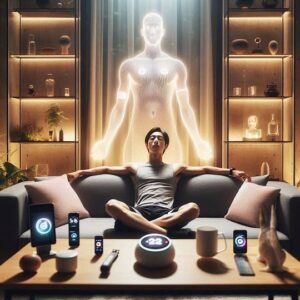
AI is revolutionizing the way we approach sleep by making it a personalized experience. Through machine learning, these innovative tools gather data from your daily routines, identifying patterns and disruptions in your sleep schedule.
The standout feature of AI is its ability to offer tailored sleep recommendations that really hit the mark. Whether it’s suggesting optimal bedtimes, tweaking your environment, or identifying habits that disrupt your sleep, AI adapts its advice based on your unique sleep profile.
Personalized insights from AI don’t just target the nightly eight hours. They provide benefits that extend to overall health, improving both quality of life and daytime performance sustainably. By targeting specific sleep issues, AI tools help users regain control over their rest routines rather than just providing generic solutions.
Take, for instance, Tom a friend of mine who struggled with erratic sleep for years. After integrating AI into his routine, he started receiving alerts about his caffeine consumption and nighttime screen time. Over time, he noticed not just better sleep, but higher energy levels, demonstrating the real-world impact of AI’s personalized approach.
Utilizing AI for Efficient Recovery
AI tools are taking physical recovery to a whole new level, especially after a demanding workout. These digital helpers track your body’s signals, suggesting specific actions to speed up muscle healing and minimize soreness, making sure you’re on point for your next exercise session.
Injury risk is a big concern, particularly for athletes and active individuals. AI steps up by identifying and alerting users to potential injury risks before they become bigger issues. It analyzes patterns in movement and exertion, offering precautionary advice that can be invaluable in preventing setbacks.
Monitoring recovery progress isn’t all guesswork anymore. AI churns out performance metrics—details you might never pick up on your own. These insights let you see if you’re overdoing it or need to step up your resting game. You can adjust your plans accordingly, aiming for peak performance without overexertion.
Athletes and fitness enthusiasts are already singing praises for AI’s recovery capabilities. They’ve found that integrating AI guidance into their routines has made their recovery smoother and more effective than traditional methods ever did. AI’s not just a tool for the tech-savvy—its simple, user-friendly applications are changing the game for everyone committed to better recovery.
The Rise of AI in Health and Fitness
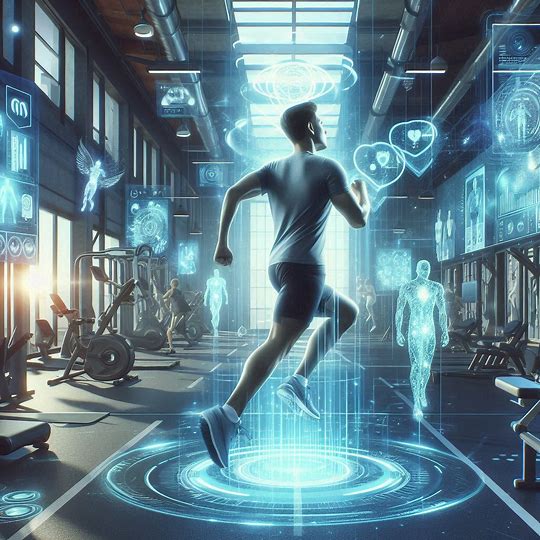
AI is making waves across health and fitness landscapes, offering tailored solutions that traditional methods simply can’t match. Its growth in this space means it’s becoming an integral part of how we approach wellness today.
One major perk AI offers is real-time analysis. Unlike old-school tracking, which often meant interpreting static data post-factum, AI provides insights on the fly. That means you’re armed with the information you need to make changes as they’re needed, improving efficiency and outcomes.
Predictive insights are another game-changer, offering a peek into potential health challenges before they fully arise. Using AI’s foresight, you can make proactive adjustments, tailoring your routines to prevent issues rather than just reacting when problems occur.
AI personalizes recommendations based on your unique data, creating plans specifically for you. This benefit overshadows generic approaches that don’t account for individual differences. AI tailors advice down to what time to wind down and how to adjust activity levels for optimal recovery.
These advantages are prompting more people to integrate AI into their routines, seeing measurable improvements in their daily health and wellness. It’s not just a future trend—AI is reshaping the way we engage with our health right now.
AI Sleep Optimization Tools and How They Work
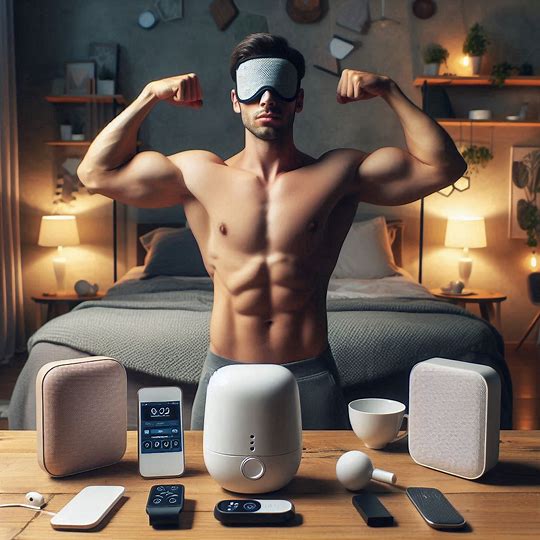
AI-powered wearables and trackers, like the Oura Ring or Fitbit, are becoming staples for sleep optimization. These nifty gadgets gather data by measuring heart rate variability, body temperature, and sleep cycles—all crucial bits of info to get a full picture of your nightly rest.
By analyzing this data, these devices offer you a detailed breakdown of your sleep quality. They help identify phases of light, deep, and REM sleep, and can even alert you to disturbances you might not consciously remember.
This information empowers you with personalized recommendations. You might discover that cutting screen time before bed or adjusting your environment can significantly boost your sleep quality.
Recovery scores from devices like Whoop track how well you recuperate overnight, suggesting changes to enhance recovery based on your previous activities. By understanding these metrics, you can decide when it’s okay to push your limits and when to prioritize recovery.
These tools are designed for ease of use. Intuitive interfaces provide clear insights, making it simple to act on their suggestions to improve sleep and recovery. These devices are like having a sleep coach in your back pocket, ready to guide you towards healthier sleep habits.
Smart Beds and Environment Control
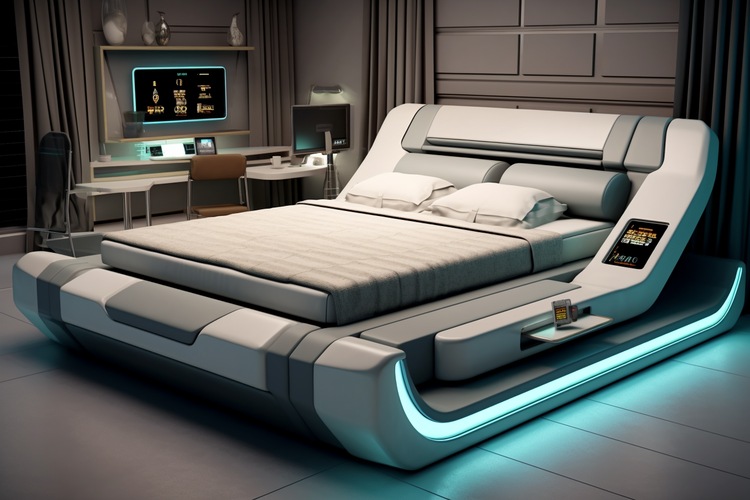
Smart beds are redefining comfort and sleep quality with AI technology. Products like Eight Sleep offer AI-driven mattresses that track your sleep patterns and adjust temperature to optimize your rest. This means no more waking up sweating or freezing; the bed proactively creates the ideal environment for uninterrupted sleep.
AI lighting systems also play a role in syncing with your circadian rhythm. By adjusting the room’s light based on time of day, they encourage natural sleep cycles, helping you wake up feeling more refreshed and alert.
These technological advancements support a smarter bedroom setup, learning from your habits to enhance sleep conditions consistently.
With AI managing environmental factors, you no longer have to guess what changes might improve your sleep. The adjustments happen seamlessly, aiding in deeper and more restorative rest.
Transforming your bedroom with these tools doesn’t require a tech degree—devices are designed for user-friendliness, integrating smoothly into daily routines, ensuring everyone can benefit from a better night’s sleep.
Practical Tips for Optimizing Recovery With AI Tools
Combining AI sleep data with lifestyle changes can supercharge your recovery routine. It’s not just about what the data says; how you apply these insights alongside daily habits can make all the difference.
Nutrition and hydration boost the efficiency of recovery processes. AI can guide you on optimal times for meals and fluids to align with your body’s rhythm, ensuring you’re well-fueled and hydrated.
Timing your exercises with AI insights will help enhance your performance and recovery. Instead of randomly choosing workout times, let AI suggest when your body is best primed for activity.
It’s important to avoid relying solely on data. Listening to your body and balancing AI recommendations with personal experience ensures you don’t push too hard, keeping injury risks at bay.
Consistency is key when using wearables and apps. Regular usage helps AI tools learn your patterns more accurately, allowing them to deliver more precise recommendations over time.
Staying mindful of the big picture is crucial. Use AI as a supportive guide, integrating its suggestions to gradually build stronger, more effective recovery habits without overwhelming adjustments.
The Future of AI in Sleep and Recovery
AI holds significant promise for the future of sleep and recovery, continuing to evolve with potential advancements that could transform our approach to health and wellness.
Imagine a world where predictive health warnings are commonplace. AI could alert you to potential sleep disorders or physical issues long before symptoms arise, allowing for preventive measures and timely interventions.
We might also see AI-driven personalized sleep coaching becoming more prevalent, offering tailored guidance that’s continuously adjusted based on your evolving needs. This personalized approach promises an elevation in individual well-being.
This technology could integrate seamlessly into everyday health routines, creating a holistic approach to wellness that encompasses diet, exercise, sleep, and recovery as a unified strategy.
For athletes, the implications are even more profound. AI’s ability to provide detailed insights and forewarnings can redefine training regimens, pushing the boundaries of human performance safely and sustainably.
The intersection of AI, sleep, and recovery offers not just enhancements in comfort but a radical shift in health management, reshaping our understanding of what’s possible for human recovery and potential.
